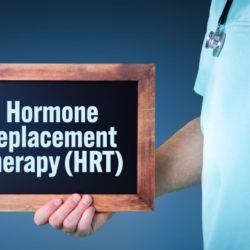
Hormone replacement therapy (HRT) has a long and fascinating history. Initially, its focus was clear: to address pathologic deficiencies. Think individuals with hypogonadism (where the body doesn’t produce enough sex hormones), those who underwent orchiectomy (surgical removal of testicles), or women who had an oophorectomy (removal of ovaries). In these cases, HRT aimed to replace missing hormones and restore vital bodily functions.
However, the landscape has shifted. We’re now witnessing a transition towards using HRT in individuals with healthy reproductive systems, but whose hormone levels might not be within “ideal” ranges. This shift raises important considerations.
The Symphony of Hormones: A Delicate Balance
Our hormone levels are a complex dance, influenced by a multitude of factors. Lifestyle plays a starring role: diet,exercise, sleep quality, and even age can all influence how our bodies produce and utilize hormones. Stress, for instance, can elevate cortisol, a stress hormone that can disrupt other hormonal pathways.
Treating Symptoms vs. Addressing the Cause
The current cultural trend often focuses on treating symptoms rather than the root cause. Many believe that simply “fixing” hormone levels will magically solve their issues, and then they’ll magically find the motivation to improve their lifestyle. Unfortunately, research suggests the opposite is true. A significant portion of people struggle to make lasting lifestyle changes, even with good intentions. This can lead to long-term dependence on HRT, potentially masking underlying issues and creating new health concerns down the line.
HRT: Not a Magic Bullet, and Potentially a One-Way Street
Ideally, anyone considering HRT should undergo a comprehensive evaluation by a healthcare specialist. The goal:identify if underlying medical conditions or modifiable lifestyle factors are contributing to the hormonal imbalance. For example, undiagnosed thyroid issues can mimic symptoms of low sex hormones.
Why Lifestyle is the Foundation
There’s a reason the saying “you are what you eat” exists. Our bodies are incredibly responsive to the choices we make.Optimizing diet, exercise, sleep, and stress management can significantly improve hormone levels. Think of it like tuning an orchestra – addressing the underlying issues (instruments needing repair) will create a more harmonious sound (balanced hormones) than simply altering the volume (HRT).
The Challenge of Delayed Gratification
Our current culture often prioritizes instant gratification. We crave quick fixes and easy solutions. However, true health requires a commitment to long-term, sustainable changes. The hard work and dedication put in today will reap rewards for years to come. Imagine the satisfaction of achieving optimal health through your own efforts, compared to relying on a medication – the “fruits of the labor” are undeniably sweeter when earned.
The Takeaway: A Holistic Approach to Hormone Health
Hormone replacement therapy can be a valuable tool, but it shouldn’t be the first line of defense. By prioritizing a healthy lifestyle and addressing underlying issues, we can empower our bodies to produce hormones naturally and experience the true joy of long-term, holistic health. Remember, our bodies are complex and amazing, and with dedication, we can unlock their full potential, naturally.


